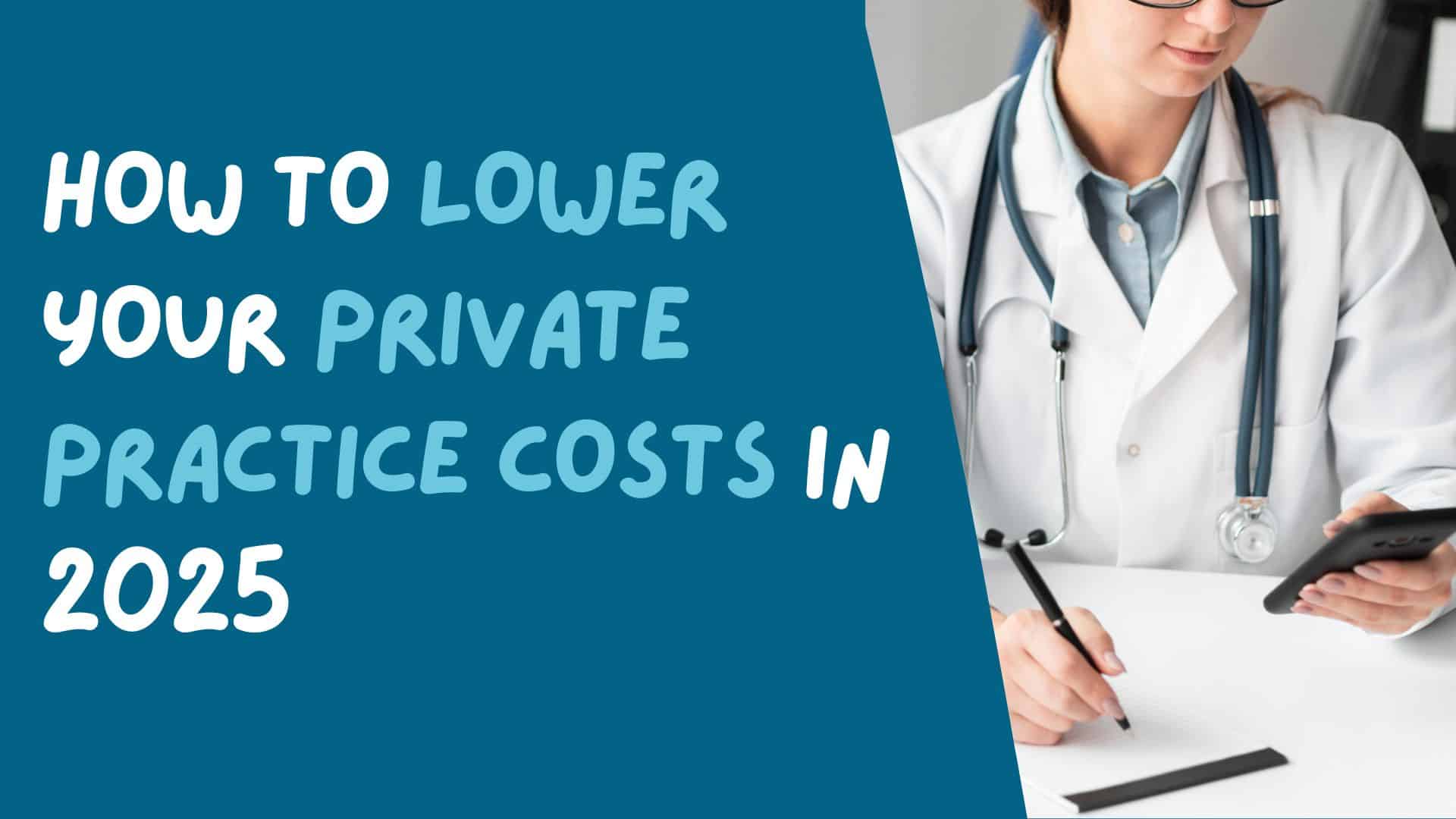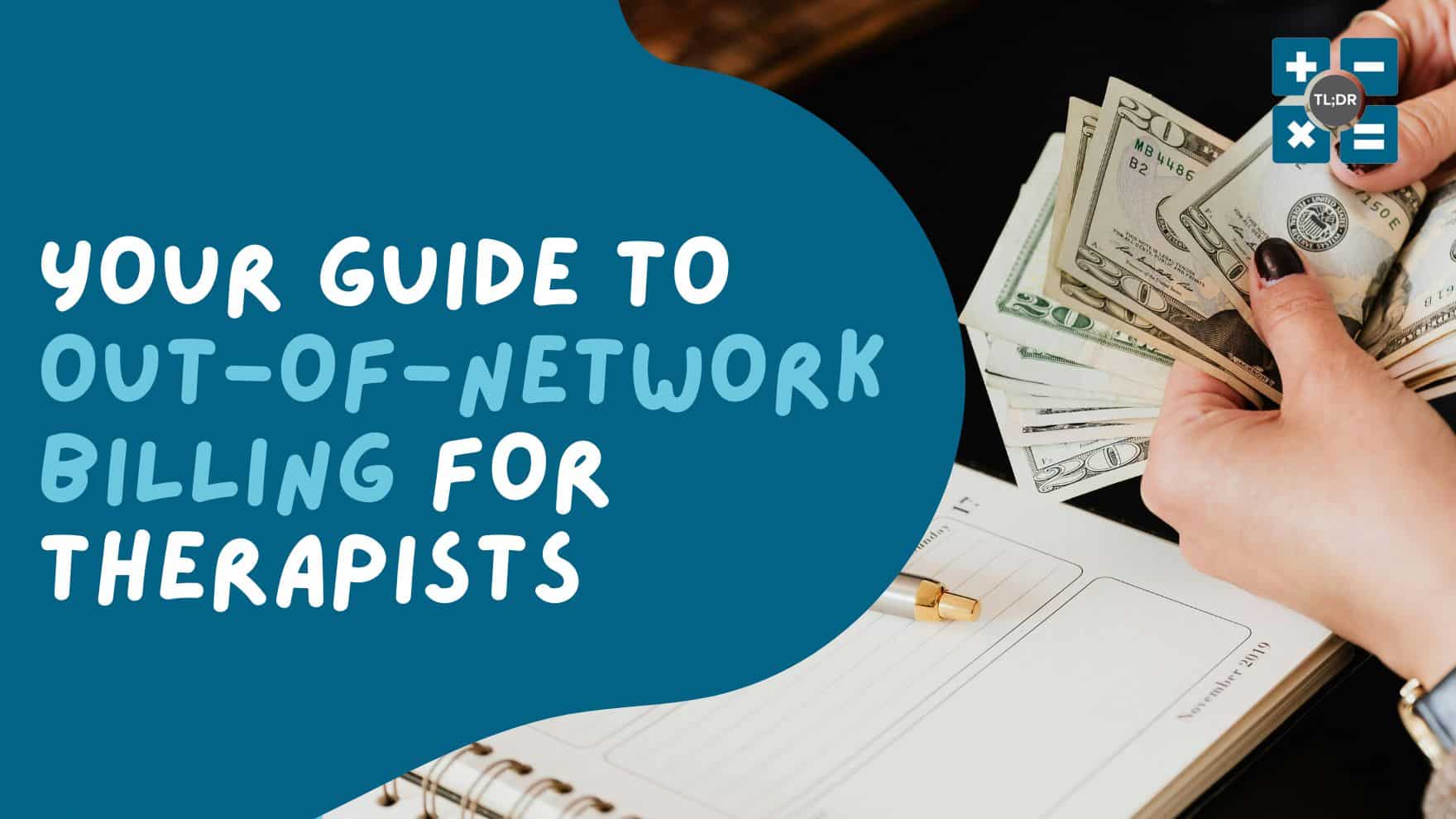Why should you pay yourself in your therapy practice? It’s one of those burning questions that most therapists find themselves asking. Well, it boils down to something pretty straightforward — self-employment taxes. The IRS is strict about those, so it’s not just a matter of choice. But that raises another big question: how much should you pay yourself?
In this article, we’ll dive into why paying yourself is not just necessary but crucial, explore the average therapist salaries, and share some tips to help you figure out the best way to set your salary.
How To Know Average Therapist Salaries
Well, the IRS wants you to cough up a reasonable salary that’s competitive for your area, position, and experience. And let’s be honest, the best way to figure out average therapist salaries is to do your homework and do some market research. Like it or not, that’s how you get the facts straight. Here are a few ways to get your hands on that salary data:
1) Ask Around Your Network
Do you have friends in the biz who also work as therapists? Hit them up and ask about their hourly rates. If you’re feeling brave, you might even chat with other therapy practices in your area — though that could be a little awkward since they’re technically your competitors.
Sometimes, a little friendly competition isn’t such a bad thing, right? You might even build some solid connections with other therapy business owners while you’re at it.
2) Check Online Salary Databases
Are you not big on the idea of striking up conversations or having a limited network? No worries. You’ve got online salary databases like Indeed, Payscale, or Glassdoor. These sites let you scope out the salary ranges based on your role and experience, and the best part? They’re free; you just need to sign up.
Out of the bunch, Glassdoor tends to spill the most tea regarding details. You can even filter the info by location to get a natural feel for the average therapist salaries in your neck of the woods, making estimating your reasonable salary much more realistic.
3) Use Local Salary Trends or Averages
Another route is to check out local salary trends from your city or state government. It might not be as up-to-date as the online databases, but local salary info can still give you a pretty good starting point if you’re just looking for a ballpark figure.
4) Trust Your Gut!
If all else fails, just trust your gut. Seriously! Imagine you’re a therapist applying to your practice. What would your asking rate be? At some point, you’ve probably been on the other side of the table, negotiating your salary with potential employers. Would you want to settle for peanuts when the job demands so much? It’s worth putting yourself in those shoes again to figure out what feels fair.
Why Do You Need To Pay Yourself?
Here’s the thing. Paying yourself a salary becomes an issue when choosing the S-Corp designation for tax purposes. We all know that being an S-Corp has its perks over C-Corps, but some folks took advantage of it, which led the IRS to crack down on business owners who don’t pay themselves a salary while working full-time in their business.
Let’s paint the picture. Sara owns a therapy practice registered as an S-Corp. The practice brings in a net income of $100,000 a year, and Sara is knee-deep in the day-to-day operations — she even sees patients herself. Now, let’s say Sara pays herself a salary of $60,000, which falls into a reasonable range for her role.
Here are the tax implications:
- On Sara’s salary, the total tax obligations would be $17,790, computed as follows:
- Federal income tax: $60,000 x 22% = $13,200
- Social security: $60,000 x 6.2% = $3,720
- Medicare: $60,000 x 1.45% = $870
- On the remaining $40,000 distributions, the tax obligation is $8,800, computed as follows:
- Federal income tax: $40,000 x 22% = $8,800
In this scenario, Sara’s total tax bill would be around $26,590.
But here’s where some business owners go off the rails: they skip paying themselves a salary. Let’s imagine Sara decided to go that route. Why would the IRS come knocking on her door?
If Sara didn’t pay herself a salary, her entire taxable income would be $100,000. At the 22% tax rate, she’d owe only $22,000 in taxes. Sure, she might think she’s saving $4,590, but this kind of corner-cutting could lead to big trouble with the IRS.
If you don’t want to mess with the IRS, we strongly suggest paying yourself a reasonable salary. It’s not just the safe move — it’s also beneficial in the long run, especially regarding Social Security and Medicare.
We Can Help Your Therapy Practice
We know it can get hectic managing a therapy practice. And to add insult to injury, you even need to pay yourself a salary and deal with more taxes. It feels like a lot, but it doesn’t have to be this way, right?
At TL;DR Accounting, we can help ease that burden. We specialize in assisting therapists with accounting, bookkeeping, advisory, and tax compliance. We know your pain points, and our team of experts is here to help you find the best solutions to your challenges.
Let’s talk and see how we can move your business forward!





